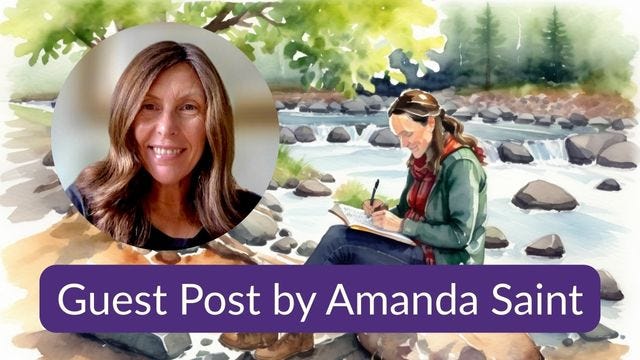How I Learned My "Too Much" Was Exactly Enough
A love letter to my fellow "over-emotional" writers
Amanda Saint was one of the first people I admired on Substack when I joined back in November 2023. I told my husband “this woman has a whole career of teaching writing on Substack…it’s amazing!”
. . . and I was totally jealous . . .
Now, Amanda is one of my favorite people on Substack, and a friend I text with on WhatsApp several times a week. We’ve guest presented…






